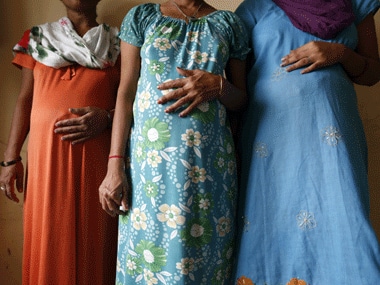In the past several decades, the concept of abortion entailed an analysis of the legal personality of the unborn foetus vis-à-vis the mental and physical health of the pregnant mother. Often, this consists of rhetorical questions such as “where does life begin?” and thereafter, pitting the rights of the unborn foetus against the rights of the pregnant mother. However, in a landmark judgment by the Supreme Court on 26 July, 2016, there was clarity on the subject as the question was on “life versus life”. It was affirmed that the petitioner — ‘Ms. X’, an alleged rape survivor — will be allowed to terminate her pregnancy beyond the legally-mandated 20 weeks, as it was noted that the woman’s life was in danger. Questions of law and morality in abortion were treaded upon during this case, as it is understood that a 20-week-old foetus, medically has a life. The petitioner had stated that the law is unconstitutional and violated her right to life under Article 21 of the Constitution. The Bench, consisting of Justices JS Khehar and Arun Mishra, gave way to this benefit stipulated under Section 5 of the Medical Termination of Pregnancy Act (MTPA), 1971, that allows the foetus to be aborted even after 24 weeks, if there is a medical threat to the life of the mother. Section 5 provides for a legally-mandated exception that overrides the ceiling of 20 weeks provided by the MTPA, 1971, to allow an abortion in case it “is immediately necessary to save the life of the pregnant woman”. [caption id=“attachment_2323324” align=“alignleft” width=“380”]  The MTPA, 1971, came into force, following the recommendation of the Shantilal Shah Committee Report in 1966 that stated that abortion and reproductive rights need to be regulated by law. Representational image. Reuters[/caption] The Bench stated — “The medical board has opined that the continuance of pregnancy would gravely endanger the physical and mental health of the mother. We are satisfied with the diagnosis and it is permissible to terminate the pregnancy as per Section 5 of the Medical Termination of Pregnancy Act, 1971. We grant liberty to the petitioner, and if she desires to terminate the pregnancy, she is permitted.” The stand of the Supreme Court Bench opens up newer avenues in the realm of sexual and reproductive health of women in India, which has so far been governed by a 45-year-old law that is archaic, arbitrary and strikes at the roots of the fundamental freedom of women. The MTPA, 1971, came into force, following the recommendation of the Shantilal Shah Committee Report in 1966 that stated that abortion and reproductive rights need to be regulated by law. The MTPA was amended in 2002 that decentralised the law of abortion by allowing penal sanctions for unapproved forms of abortion, and the formulation of MTP rules in 2003. In 2006, in Nand Kishore Sharma v Union of India, the MTPA was challenged on the grounds that it violates the right to life and dignity of Article 21 of the Constitution. The Court, in this judgement, stated that the relevant provision of the MTPA was not unconstitutional and was in consort with Article 21. The Court, however, did not opine about whether the Act is in violation of the right to life of the foetus, stating that it would be difficult to pinpoint when the life of the foetus begins. In Dr Nikhil Dhattar v Union of India (2008), a case similar to the one of Ms X’s, where the petitioners, Haresh and Nikita Mehta had beseeched the Bombay High Court to allow them to abort their 26-week-old foetus, which had been diagnosed with a heart defect. It is during this case that the medico-legal narrative was jolted into awareness about how the advent of medical technology mandated a change in the understanding of foetus viability and amendments in the law. Their plea was struck down because of expert medical opinion. The Court suggested that changes in the law can only be affected by the legislature. The current case indicates that there are gaping flaws in the extant piece of legislation. A draft amendment bill on the MTPA in 2014 by the Ministry of Health can be the way forward — it provides for abortion beyond the 20-week ceiling under well-defined conditions, it also states that a healthcare provider may “in good faith” allow abortion between 20 to 24 weeks of pregnancy, if there is substantial risk to the mother or the child, or if it is “alleged by the pregnant woman to have been caused by rape”. The draft law identifies the current scenarios where rapes are rampant and states pregnancy resulting from rape “may be presumed to constitute a grave injury to the mental health of the pregnant woman”, and that such an injury could be a ground for allowing abortion. With the Supreme Court’s judgement, the time is ripe to endeavour to amend the MTPA to allow for a revised legal limit for abortion. The MTPA in 1971 did not foresee the changes in the medico-technological sphere with the regular use of ultrasound and MRIs to determine natal health and well-being. The MTPA in 1971 also did not make itself conducive to the sexual and reproductive health rights and empowerment of pregnant women and therefore, this seems the perfect time to push for these changes in the legislation.
Questions of law and morality in abortion were treaded upon during this case, as it is understood that a 20-week-old foetus, medically has a life.
Advertisement
End of Article


)

)
)
)
)
)
)
)
)



